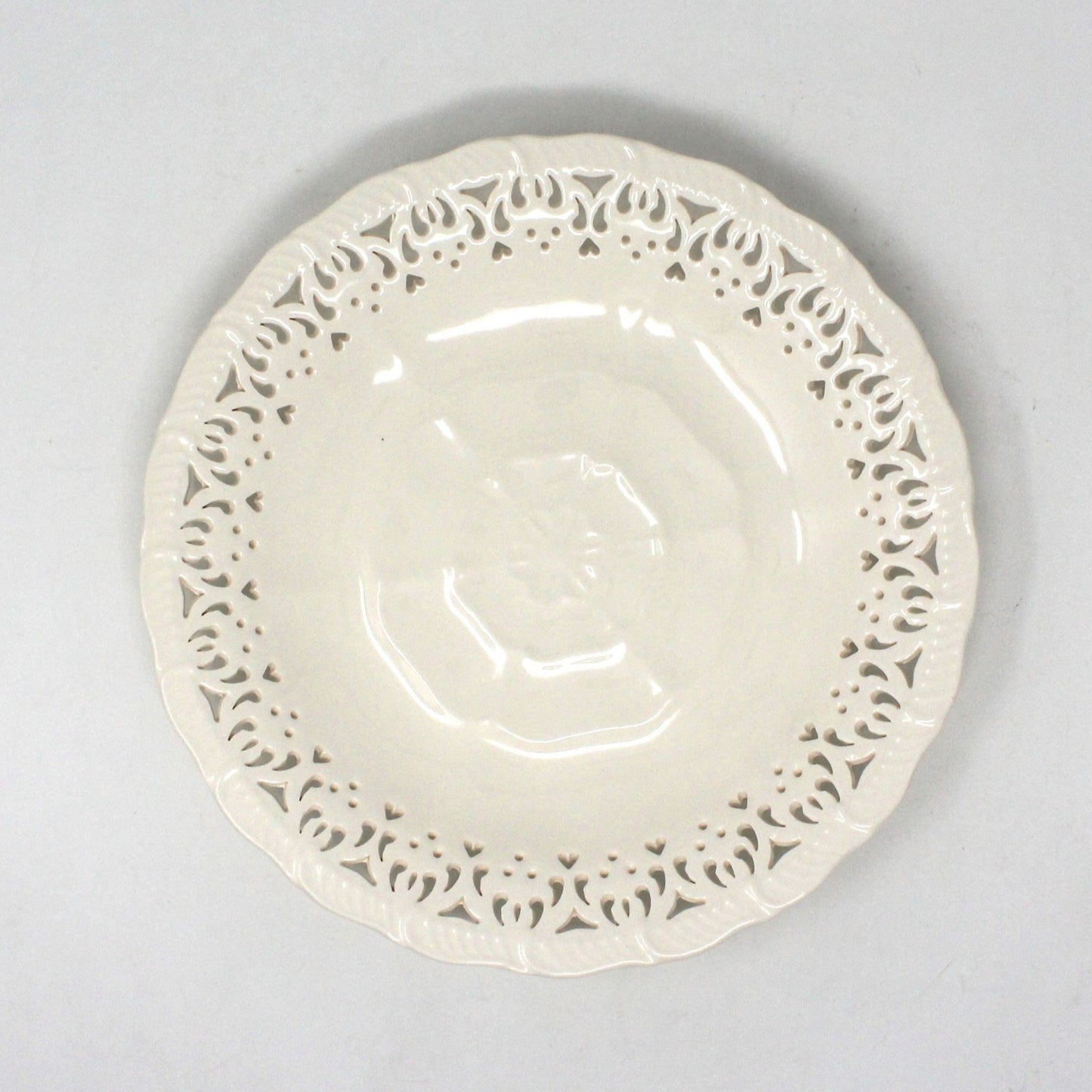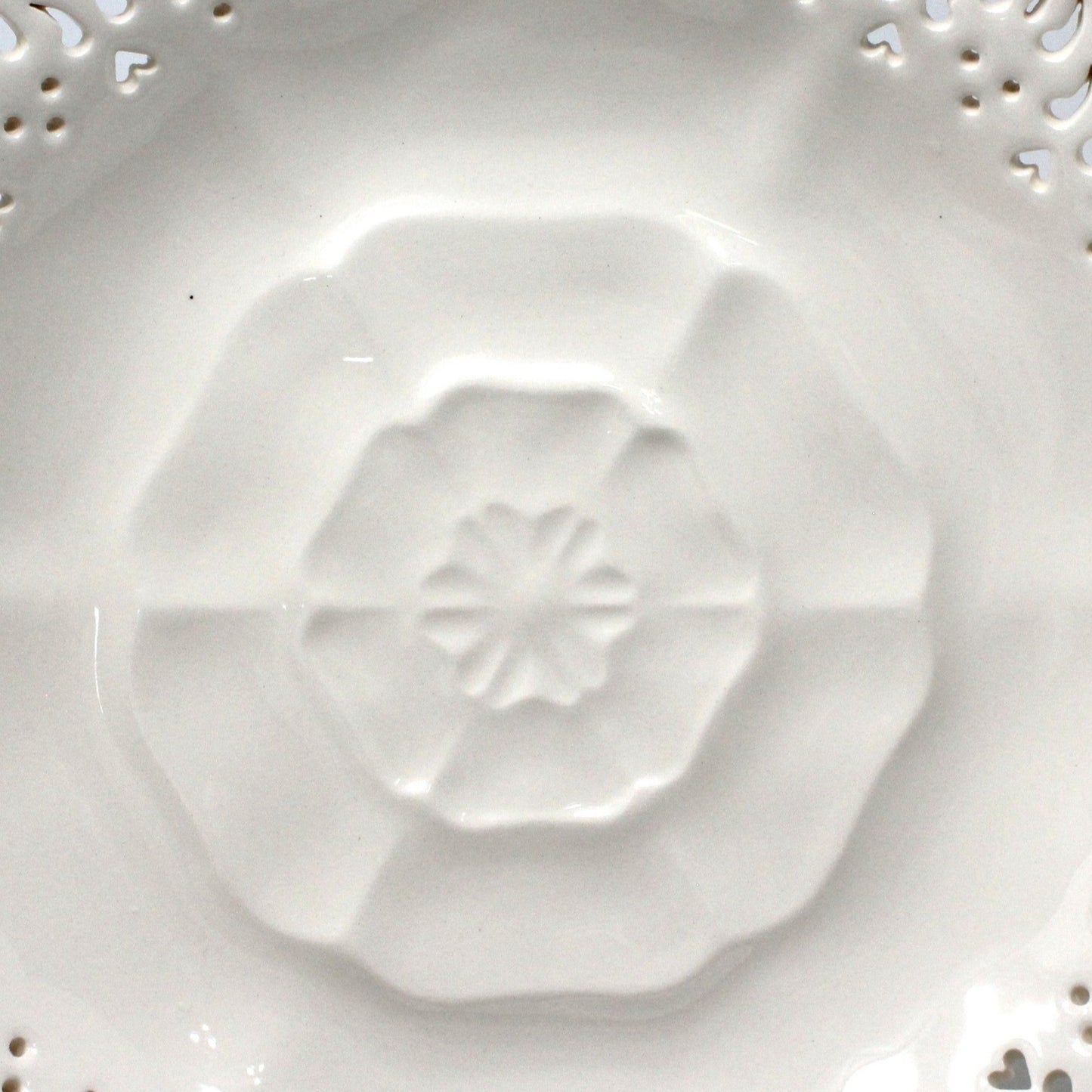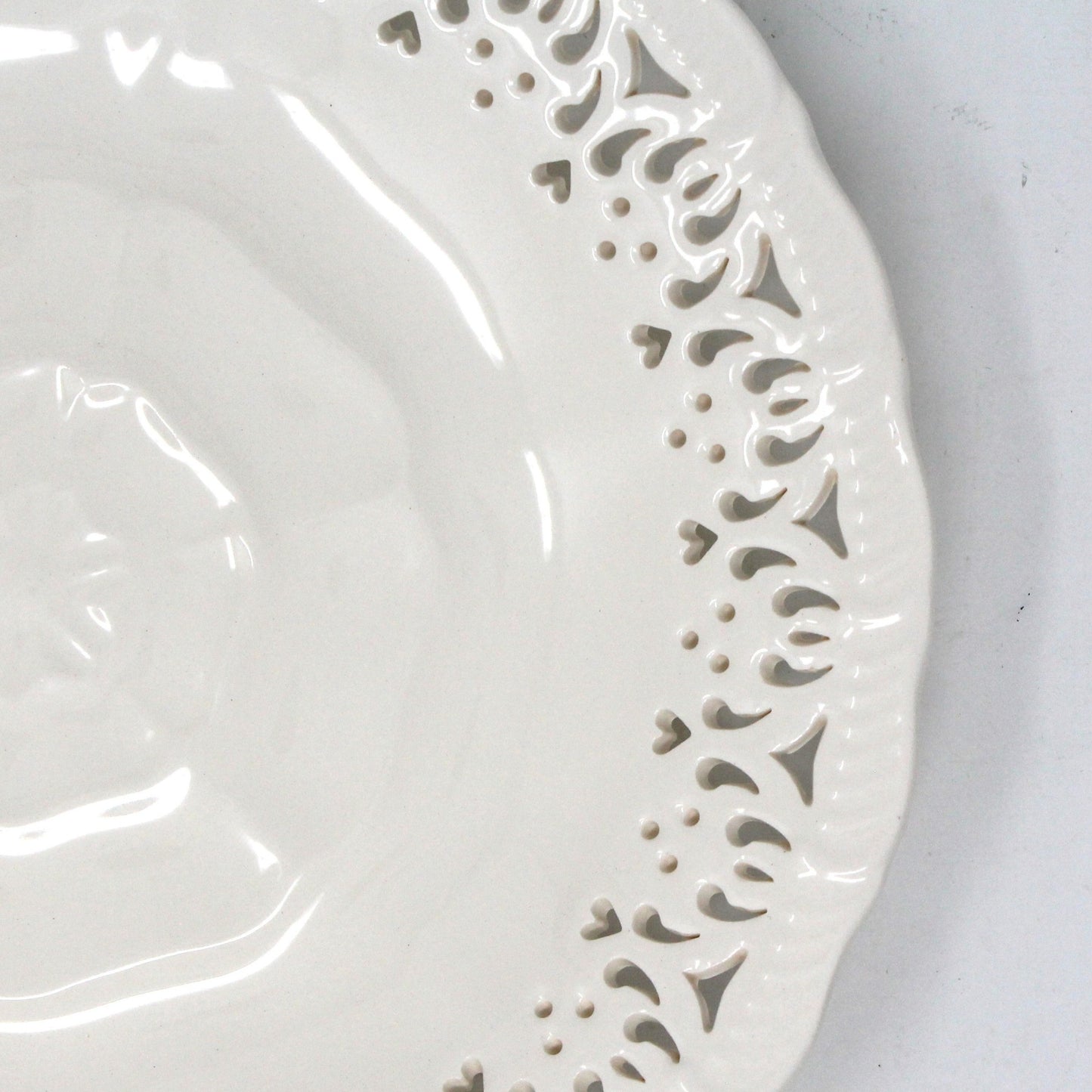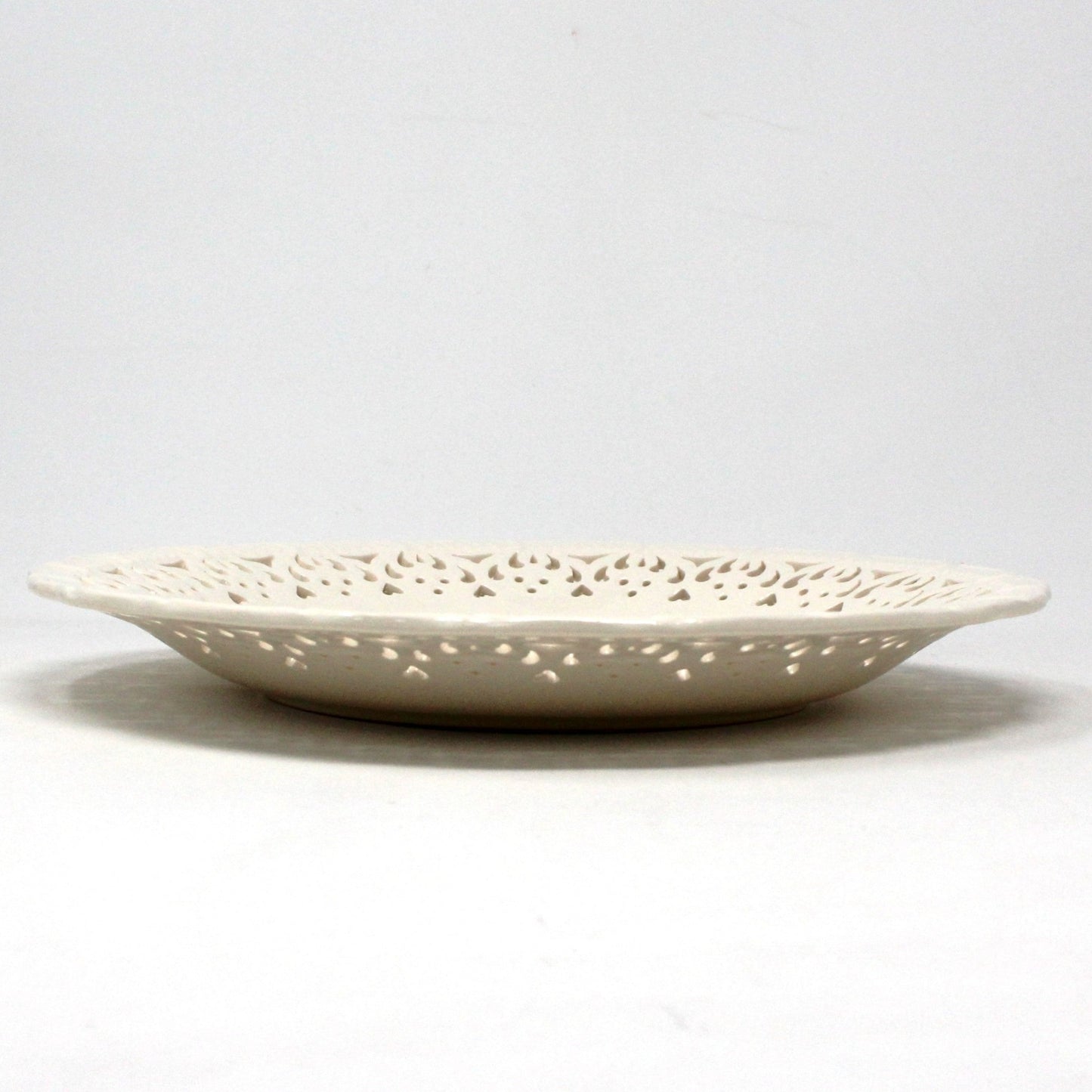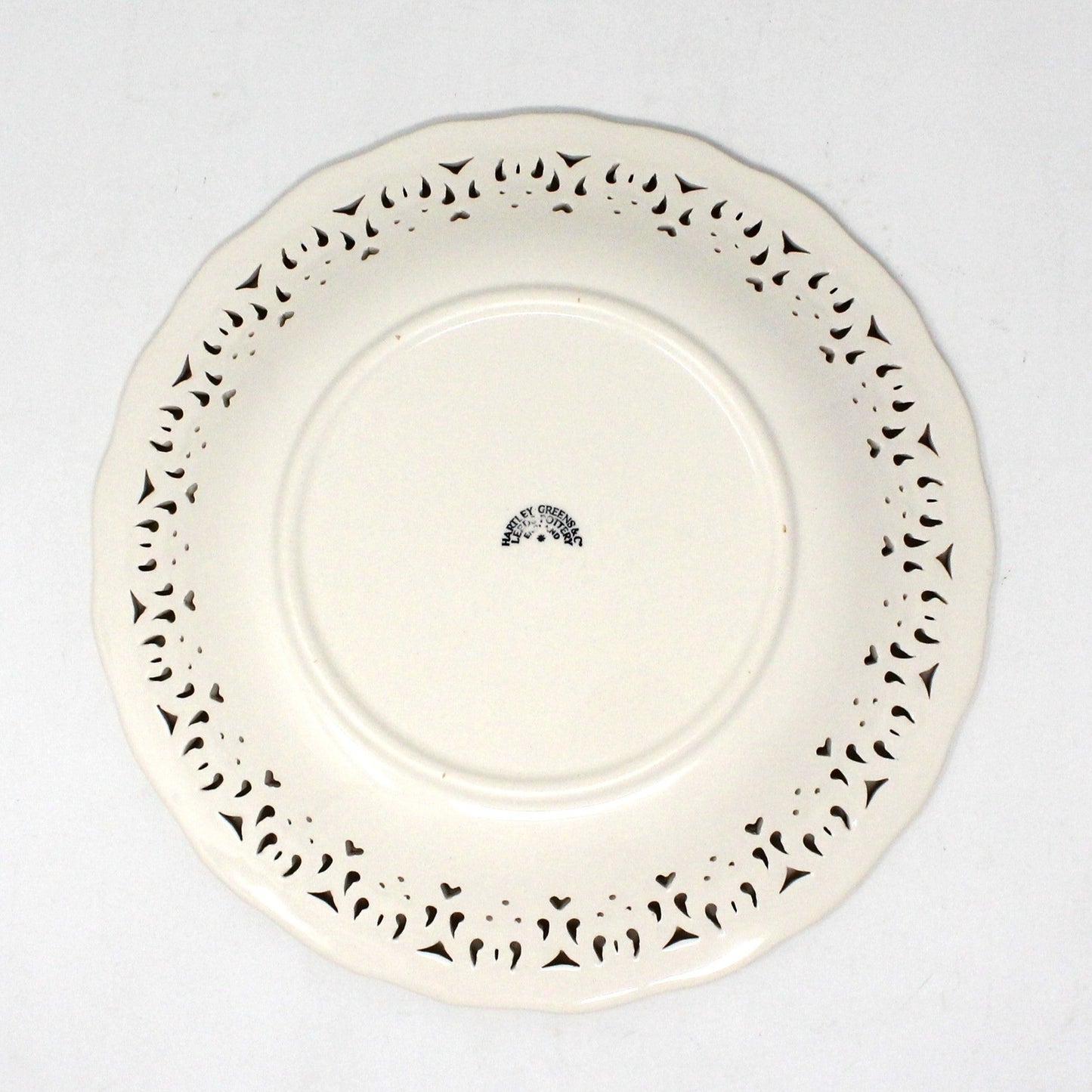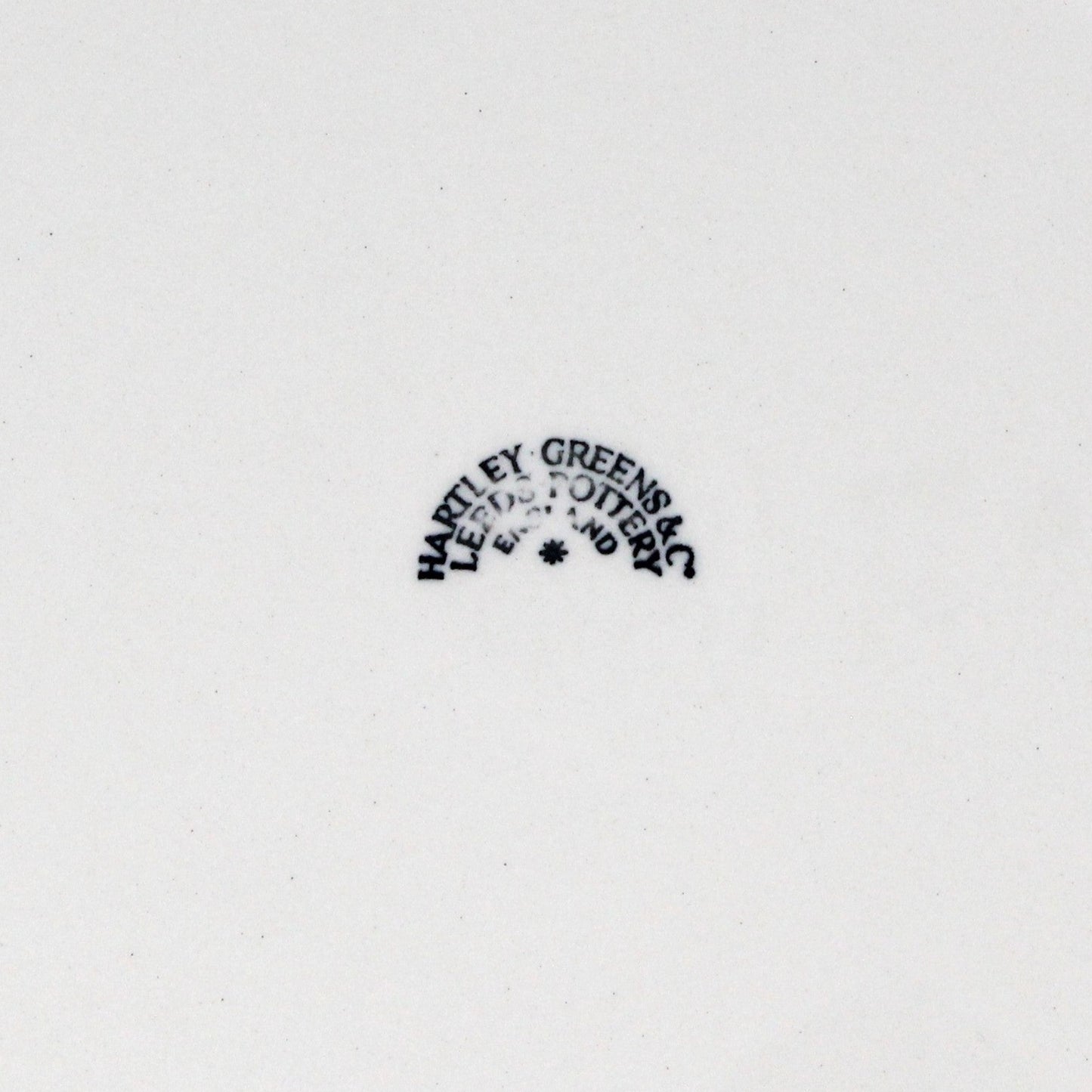Hartley Greens & Leeds Pottery
Decorative Plate, Hartley Greens & Leeds Pottery, Creamware, Tudor Rose Yorkshire Rose Plate, Antique
Decorative Plate, Hartley Greens & Leeds Pottery, Creamware, Tudor Rose Yorkshire Rose Plate, Antique
Couldn't load pickup availability
- Antique Plate, English Creamware Plate, Reticulated Border, English Pottery, Ironstone, Yorkshire/Tudor Rose Plate, Home Decor, Tableware, Decorative Wall Plate, (Discontinued)
- Made in: Yorkshire, England
- Antique: 1783 - 1821
- Details: An absolute treasure, a most RARE find!! This gorgeous decorative plate was entirely made by hand by the masters at Hartley Greens & Leeds Pottery in England. This is part of the very sought after Creamware with reticulated / pierced borders, this one has small hearts, in the center is an embossed rose completes the pattern. The mark on the back, Hartley, Greens, & Co., Leeds Pottery in a semicircle, helps us date it to the earliest days of this pottery. There is also a very thick gold swirled border, also indicative of an earlier decor style. This would make a beautiful addition to a wall plate collection. We carry several other plates, if you would like 3 or more Decorative Plates (mix and match from our entire Decorative Plates section), please Contact Us for 20% off, don't forget to let us know which 3 plates you would like.
- Material: Earthenware
- Dimensions: 9.0 inches in Diameter
- Condition: Antique - Used. Excellent condition. Unbelievable condition, we could find no chips, cracks, or scratches on this piece. Please review all pictures and make sure you love this item before purchasing, we can't accept returns. Please remember these are VINTAGE and ANTIQUE items, they are NOT new, every effort has been made to show scratches, wear and tear and imperfections.
Hartley, Greens & Leeds Pottery, England first began operations, (Leeds Pottery and Hartley Greene & Co. are synonymous), when John Green and Joshua Green, established a pottery in Hunslet, just south of Leeds, in 1756. When Richard Humble joined the firm in 1775, it became Humble, Green and Co. William Hartley became a partner in 1783, the name changed to Hartley Greens & Co, producing mugs, dishes, tea sets and other pieces but they are best known for their cream colored earthenware, aka Creamware. What's most unique about their process is each perforation was done separately by hand, in the shape of diamonds, squares, ovals, and hearts, as in this plate, and arranged in geometrical patterns along the borders, sometimes the entire piece was heavily pierced. In the early 19th century, however, the company went into a prolonged decline and from 1821 was sold several times. First to Wainwright & Co., Stephen & James Chappell, Warburton & Britton, and finally Richard Britton & Sons, until it finally closed in 1881. Even though the original buildings were torn down, in 1888 James Wreith Senior restarted the company, using old designs and a new mark: "Leeds Pottery", which lasted until 1957. Leeds City Council restarted the brand in 1983, making reproduction pieces, but soon had to sell the business. Production was moved to Stoke-on-Trent, and in 1992 after acquisition by John Croft, it was renamed Hartley Greens & Co. In 2011 it was, acquired by Denby Pottery, and production moved to Middleport pottery, north of Stoke-on-Trent, using a brand new stamp: "Leedsware Classical Creamware, England".
Share
